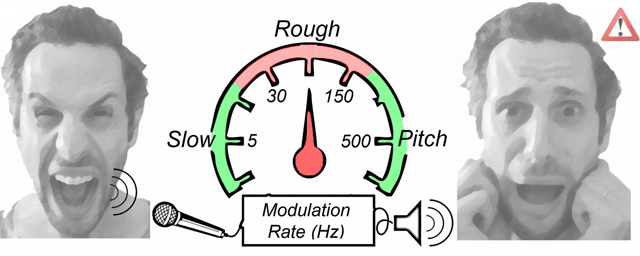In a horror movie, there’s the eerie, ominous soundtrack, a blurry shadow moving in the dark, and finally, the sound of a woman’s shrill scream that puts you over the edge. What is it about screaming that makes us so unsettled?

In a new study, American researchers suggest that the blood-curdling sound of screaming activates the fear circuitry in our brains. There are plenty of loud noises, but no sound is as spine-chilling as a scream because it’s warning us that something has gone terribly wrong, they say.
“If you ask a person on the street what’s special about screams, they’ll say that they’re loud or have a higher pitch. But there’s lots of stuff that’s loud and there’s lots of stuff that’s high pitched so you’d want a scream to be genuinely useful in a communicative context,” senior study author, Dr. David Poeppel, said in a New York University statement.
“Screaming really works. It is one of the earliest sounds that everyone makes – it’s found across cultures and ages – so we thought maybe this is a way to gain some interesting insights as to what brains have in common with respect to vocalization,” Poeppel said.
READ MORE: Why you should care about changes to the DSM mental health bible
For his quirky study, Poeppel and his team pulled together a compilation of screams from YouTube videos, popular movies, and from volunteer screamers who were recorded in the lab’s sound booth.
- ‘Super lice’ are becoming more resistant to chemical shampoos. What to use instead
- Solar eclipse eye damage: More than 160 cases reported in Ontario, Quebec
- 3 women diagnosed with HIV after ‘vampire facials’ at unlicensed U.S. spa
- Canadian man dies during Texas Ironman event. His widow wants answers as to why
The researchers note: there is no repository of human screams and there’s little research out there on the effect of human screams. They say that our brains and auditory systems are pretty smart: we can distinguish speech patterns, pick apart sounds made from vowels and consonants, and identify if a sound is being made by a man, woman or another species.
READ MORE: No one’s ‘immune’ to memory distortion, even those with superior memory
Scientists know where in the brain all of this information is processed, but screams are in a category of their own and are often overlooked.
Poeppel mapped out the sound waves to pick out what fires up the auditory neurons. The scientists noticed there was a wide range of acoustic information to take into account.
READ MORE: Man’s severe memory loss after visiting dentist baffles scientist
“We found that screams occupy a reserved chunk of the auditory spectrum, but we wanted to go through a whole bunch of sounds to verify that this area is unique to screams. In a series of experiments, we saw that this observation remained true when we compared screaming to singing and speaking, even across different languages,” Poeppel explained.
The only exception – what Poeppel says is “peculiar and cool” from his findings – is that alarms, like car alarms and house alarms, also activate this overlooked area they uncovered after listening to screams.
Screams and alarms have a “roughness” property, which refers to how fast a sound changes in loudness.

Our normal speech patterns hardly change in volume, but screams bothered volunteers because of this roughness. It triggered the fear response in people.
Poeppel suggests his findings could help with improving the design of alarm signals.
READ MORE: Remember where you were on 9/11? Study suggests memories may be distorted
“The same way a bad smell is added to natural gas to make it more detectable – adding roughness to alarm sounds may improve and accelerate their processing,” he said.
His next steps are to zero in on babies’ screams to see if they’re particularly rough. They’re also wondering if their findings apply to animal screams or if they’re relevant only to humans.
Their full findings were published Thursday night in the journal Current Biology. Read the study here.
carmen.chai@globalnews.ca
Follow @Carmen_Chai




Comments